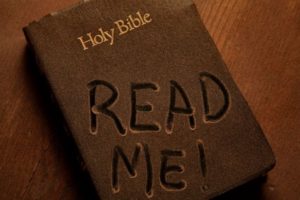In the first movement of Gideon, I imagine music played with trepidation. The woodwinds fearing the heavy threatening percussion instruments. The second movement changes those woodwinds to the power and victory of the horns that beat back the percussion. The final movement has the strings of the orchestra take center stage which narrows to the single violinist performing a closing solo. The idea of an orchestra flowing to a singular player is in many ways what the whole story of Gideon represents. It is meant to make us forget about the greater orchestra and the important roles they played. Even more so though it is meant to make us forget about the conductor.
Judges 8 opens with Gideon in pursuit the Midianite leaders, Zebah and Zalumna. during the pursuit, he passes the cities of Sukkoth and Peniel. At each of these cities, Gideon requests hospitality. They both turn him and his troops away with insults. Gideon threatens to return and exact revenge for their insults (Cue the strings starting to rise). Gideon does capture Zebah and Zalumna. He then parades his prey at both Sukkoth and Peniel, and he exacts his revenge, scourging the elders of Sukkoth and killing the men of Peniel before killing Zebah and Zalumna.
Gideon’s story has the strings beginning to steal power from the horns of victory at the point of his revenge. Then the strings quiet to the soloist during the next piece of the story. The people of Israel ask Gideon to be their king, but he declines. Instead, he asks for their loyalty be each man giving an earring. From the earring, he creates a golden ephod. The ephod moment is where all is quiet for the soloist. The earrings are an ancient method of claiming loyalty. What Gideon has done is claim all the power with none of the responsibility of a king. Gideon setting up his ephod for worship shifts the story of communal faith or disbelief to that of personal or solo faith, faith in man instead of God.
With Gideon setting up his ephod for worship, he encapsulates what will be a continuing struggle for the Israelites. Only Jehu (a northern king) was able to push back any idol worship. He was able to destroy Baal worship (in a lasting manner – 2 Kings 10:27-28) in the northern kingdom of Israel. The ephod shows how forgetful we are and what we cannot remember. Gideon knows he should not make any graven image based on the Ten Commandments. He chooses not to follow God’s path because he can’t remember the music from the start of his own story.
We are left to contemplate our own forgetfulness. Gideon can’t remember life from perhaps only a few months ago, but God does. God hears his people and He, thankfully, remembers his promises to them. The arc of the people forgetting God is not foreign to us today. It is hard to remember all of our blessings. I only remember what is right in front of me. I have my own idols that I choose to worship instead of God. What are yours? It is easy to forget that my son is a blessing when he whines or throws a temper tantrum, but that doesn’t change that he is a blessing. I have just forgotten it. What do you forget that God remembers and tries to remind you?
A final question: how do you engage with your community of faith? Perhaps Gideon might not have been led astray if he consulted a priest or prophet. Comment below and if nothing else we can be a community of faith.
Gideon (Third Movement)
Reading Time: 3 minutes




